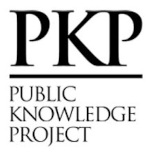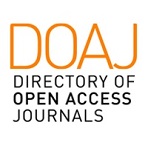Exploring Playful and Technological Strategies
Insights for Developing Games and Educational Applications About Recycling for Children
DOI:
https://doi.org/10.29147/datjournal.v10i2.891Keywords:
Games, Educational Applications, Recycling, ChildrenAbstract
As human behavior becomes a significant factor in the impact of waste disposal on nature, it is crucial to explore strategies to engage the population on this topic and encourage a more sustainable relationship with the environment. The present review focuses on mapping and understanding relevant aspects provided by the literature from January 1, 2020, to May 10, 2024, for the production and use of game software and applications to teach children about environmental preservation and recycling principles. The results highlight the importance of environmental awareness from early childhood, emphasizing the role of playful and technological education in promoting sustainable practices among children.
Downloads
References
BANDURA, A. Social foundations of thought and action. Englewood Cliffs, NJ: Prentice-Hall, 1986.
FINK, A. Conducting research literature reviews: From the internet to paper. 3rd ed. London: SAGE Publications, Inc, 2010.
KAVERI, G. Household waste generation: Understanding family practices and challenges in Singapore. Unpublished manuscript, 2021.
KIM, S., et al. Educational games and students’ game engagement in elementary school classrooms. Journal of Computers in Education, v. 4, n. 4, p. 395-418, 2017. DOI: https://doi.org/10.1007/s40692-017-0095-4
KUROKAWA, H., et al. Improvement impact of nudges incorporated in environmental education on students’ environmental knowledge, attitudes, and behaviors. Journal of Environmental Management, v. 325, 116612, 2023. DOI: https://doi.org/10.1016/j.jenvman.2022.116612
LANKES, M., et al. InterPlayces: Results of an intergenerational games study. In: Serious Games: Third Joint International Conference, JCSG 2017, Valencia, Spain, November 23-24, 2017, Proceedings 3. Springer International Publishing, 2017.
LOCRITANI, M.; MERLINO, S.; ABBATE, M. Assessing the citizen science approach as tool to increase awareness on the marine litter problem. Marine Pollution Bulletin, v. 140, p. 320-329, 2019. DOI: https://doi.org/10.1016/j.marpolbul.2019.01.023
MOHER, D.; LIBERATI, A.; TETZLAFF, J.; ALTMAN, D. G.; The PRISMA Group. Preferred reporting items for systematic reviews and meta-analyses: The PRISMA statement. PLoS Medicine, v. 6, n. 6, 2009. Disponível em: http://dx.doi.org/10.1371/journal.pmed1000097. DOI: https://doi.org/10.1371/journal.pmed.1000097
NINSIANA, W.; SEPTIYANA, L.; SUPRIHATIN, Y. Introducing eco-literacy to early childhood students through digital learning. Journal of Education and Learning (EduLearn), v. 18, n. 1, p. 89-96, 2024. DOI: https://doi.org/10.11591/edulearn.v18i1.20678
PAREJO, J.-L., et al. Plastics as an educational resource for sustainable development: A case study in Ghana. Sustainability, v. 13, n. 12, 6727, 2021. DOI: https://doi.org/10.3390/su13126727
POJE, M., et al. Environmental Education on Sustainable Principles in Kindergartens—A Foundation or an Option? Sustainability, v. 16, n. 7, p. 2707, 2024. DOI: https://doi.org/10.3390/su16072707
PRAET, E., et al. Bottle with a message: The role of story writing as an engagement tool to explore children’s perceptions of marine plastic litter. Marine Pollution Bulletin, v. 186, 114457, 2023. DOI: https://doi.org/10.1016/j.marpolbul.2022.114457
PRAMLING SAMUELSSON, I. Why we should begin early with ESD: The role of early childhood education. International Journal of Early Childhood, v. 43, n. 2, p. 103-118, 2011. DOI: https://doi.org/10.1007/s13158-011-0034-x
ROSSANO, V.; DE CAROLIS, B.; MANZONI, P. Mini-games to Motivate and Engage Users in Learning Recycling Rules. In: International Conference in Methodologies and Intelligent Systems for Technology Enhanced Learning. Cham: Springer International Publishing, 2022. DOI: https://doi.org/10.1007/978-3-031-20617-7_10
SALAZAR, C., et al. From theory to action: Explaining the process of knowledge attitudes and practices regarding the use and disposal of plastic among school children. Journal of Environmental Psychology, v. 80, 101777, 2022. DOI: https://doi.org/10.1016/j.jenvp.2022.101777
SHEAVLY, S. B.; REGISTER, K. M. Marine debris & plastics: Environmental concerns, sources, impacts and solutions. Journal of Polymers and the Environment, v. 15, n. 4, p. 301-305, 2007. DOI: https://doi.org/10.1007/s10924-007-0074-3
TERÁN, Y.; GIMÉNEZ, A. Experiencias de educación ambiental en la catedra Biología del Programa Ingeniería Agroindustrial de la UCLA. Agroindustria, Sociedad y Ambiente, v. 1, n. 18, p. 132-138, 2022.
Downloads
Published
How to Cite
Issue
Section
License
Copyright (c) 2025 DAT Journal

This work is licensed under a Creative Commons Attribution 4.0 International License.


























